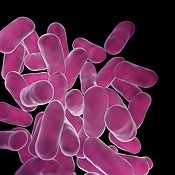Probiotic research must better combine technology and functionality, argue researchers

The study – published in Trends in Food Science & Technology – identifies and proposes issues in the research and development of probiotic strains and probiotic food. The review argues that probiotic technology and functionality could be improved by “re-directing microbial physiology” and by taking an over arching view to strain selection.
Led by Abelardo Margolles from the Dairy Institute of Asturias (IPLA) and the National Research Council (CSIC), Spain, the researchers outline perspectives “that need to be addressed in the field of probiotic research” including the notion that current research is too separated to deal with either ‘technology’ or ‘functionality’. The team argues that research in the field of probiotics needs to change to marry together these traditionally separate research areas.
“We now know that manufacturing processes and matrices may have an effect on the functional performance of probiotic strains. Therefore, technology and functionality should both be taken into consideration and be studied together,” said Margolles.
The researchers suggest that industry R&D should move from independent strain selection and efficacy assessment “toward a global product design that considers from the start: strain source and properties, manufacturing process, food matrix, product’s nutrient profile, target population and pursued clinical outcomes.”
“The use of such an approach, in which the aim is clear from the beginning and the whole process follows a scientific rationale depending on the desired outcome, may constitute a way toward improving technological and functional properties of probiotics,” they said.
Shifting paradigm?
The authors noted that traditionally, probiotics have been selected for their technological parameters, without following a scientific rationale for specific applications. However, they note that high-throughput technologies now allow the scientific community to establish novel probiotic markers – which may help to understand the probiotic effect, in addition to revealing other traits that may relate to the ‘robustness’ of the bacteria.
“These markers could be used for strain selection and included among the selection criteria for new probiotics,” said the researchers.
The team added that selection of probiotic strains with increased activity of certain metabolic pathways “may be another strategy for their successful inclusion in food products, improving their viability, stability and behavior in the human gastrointestinal tract.”
Source: Trends in Food Science & Technology
Published online ahead of print, doi: 10.1016/j.tifs.2012.02.002
“Toward improving technological and functional properties of probiotics in foods”
Authors: B. Sánchez, L. Ruiz, M. Gueimonde, P. Ruas-Madiedo, A. Margolles















